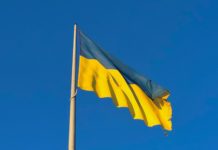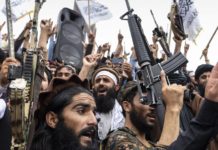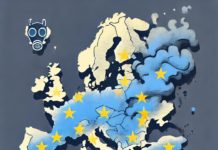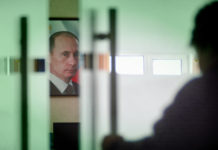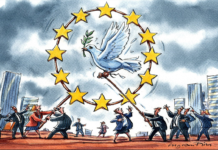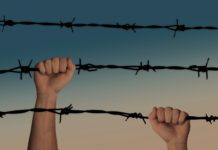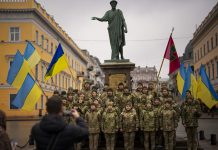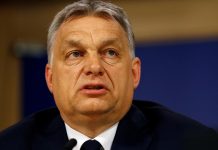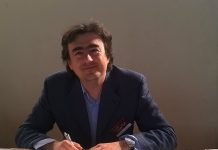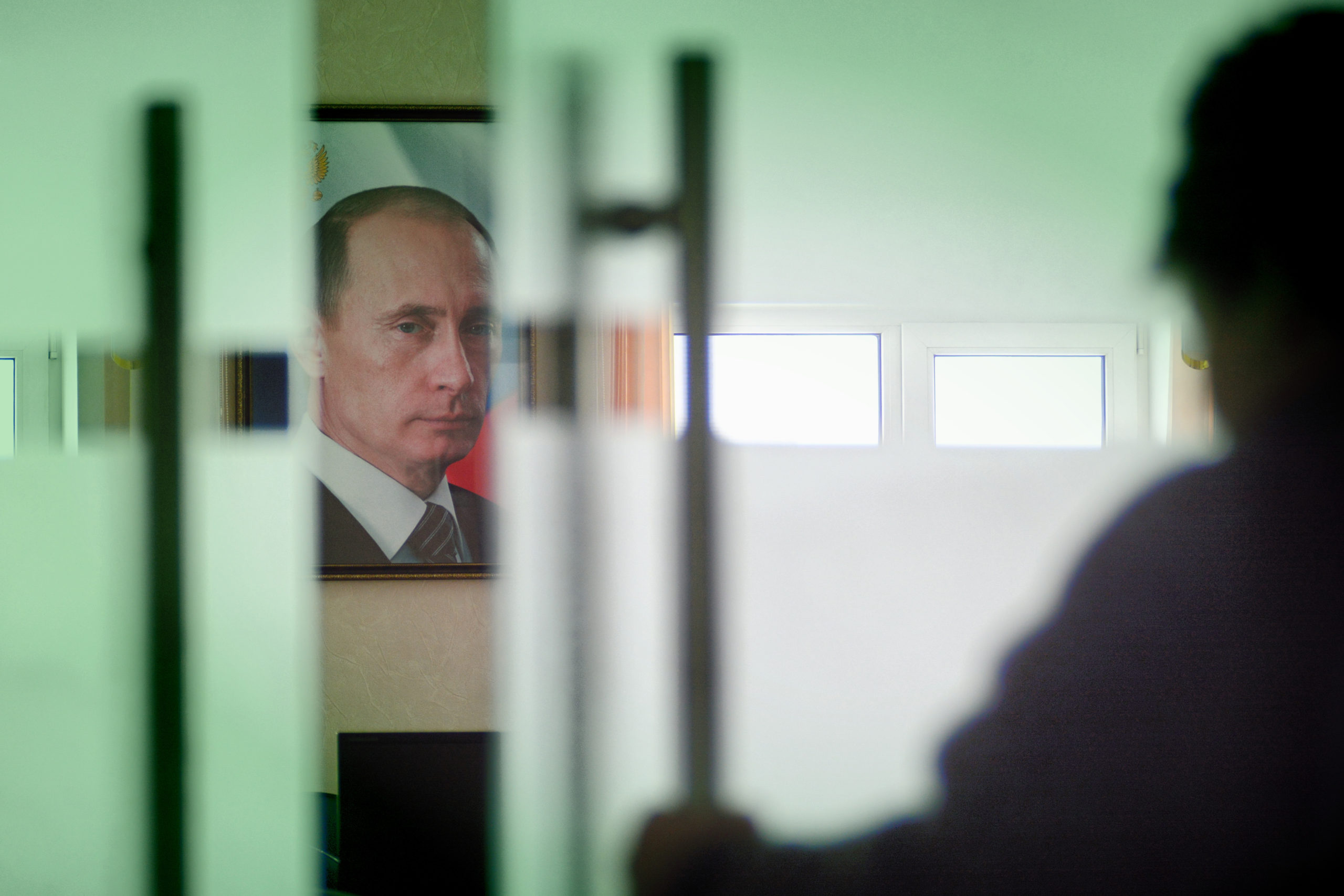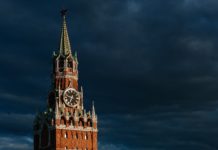The expression “soft underbelly”, in a geopolitical context, is widely attributed to Winston Churchill, referring to the Allied invasion of Europe, through Italy, during World War II. As opposed to the difficulty of a massive amphibious invasion of occupied France, at that time, Italy was seen as the weak spot of the Axis. It is reported that Churchill, in a discussion with Stalin, drew a crocodile and indicated its vulnerable belly, a metaphor for Italy. Fast forward 80 years and another expansionist, revanchist power is again waging a brutal war in the heart of Europe. The question is what is Putin’s soft underbelly?
The answer is, of course, not straightforward. The Putin regime has, arguably, many weak spots. One obvious weak spot is the performance of the Russian military in Ukraine. A significant deterioration of its military campaign, such as losing control over Crimea, would surely jolt Putin’s throne and trigger unrest, if not even regime change. Unfortunately, it is quite clear that there is no broad consensus among allies when it comes to providing Ukraine with the tools that it needs, in a reasonable timeframe, in order to achieve significant battle gains.
Is there another pressure point that the West can push to alter Putin’s calculations and behavior? Yes, and it may be much more important in his quest of perpetuating himself and his cronies in power. It is the social contract that he has proposed to the Russian people when he came to power in the 2000s, economic and social stability in exchange for staying out of politics.
The caveat that comes with using the term “social contract” is that it obscures the erosion of democracy by portraying Vladimir Putin as CEO of Russia Inc., a technocrat that objectively runs the national corporation in order to generate wealth for its shareholders, the people. Also, Putin didn’t necessarily create the conditions for social and economic stability, but took advantage of a natural trend and conjuncture of early 2000s Russia. Nevertheless, he portrayed himself as a providential leader that saved Russia from the dark 90s, and now bears responsibility for upholding the terms of this so-called contract.
Macroeconomic and social stability are broad terms. What are the specific pillars of stability for Russians that Vladimir Putin must preserve? One important example is the pension system. When the government tried to reform the pension system in 2005, by transforming benefits (such as free public transport) into cash payments, mass protests ensued. Putin was forced to back down and make significant concessions by doubling the planned increase in pensions and restoring free public transport for pensioners.
In the same year, he said, in a rare televised address, that the retirement age will not be increased while he is president. In 2018 he broke that promise by endorsing a law that saw the retirement age increase for men from 60 to 65 and for women from 55 to 63. Again, mass protests ensued. This time, Putin made much fewer concessions (agreeing to a retirement age of 60 for women) but, nevertheless, took notice of the public’s discontent.
Another important pillar of social stability is the unemployment rate and the general living standard. In 2009, in the aftermath of the American housing market crash, living standards across Russia were starting to fall and a quarter of the population was considering joining protests against the government. That year, the unemployment rate was around 10%. One relatively small town in the Leningrad Oblast called Pikalyovo, about 250 kilometers west of Sankt Petersburg, made it in the national spotlight, when residents that were out of job from the only major employer present there, a cement factory owned by BasicElement (linked to Oleg Deripaska), staged protests and blocked a major highway. This prompted Vladimir Putin himself to fly there by helicopter in order to appease the people. The protests eventually subsided but Putin saw a grave threat in what happened in that inconspicuous Russian town.
Pikalyovo is what is called a monotown (monogorod), a town with its economy and working population dependent on one or two industries, often just one factory or employer. Oftentimes, these towns are located in remote areas, with little to no direct connections to larger urban areas. The crisis has prompted Putin to establish institutional mechanisms to monitor and improve the situation. Russian sociologist, Yevgeny Gontmakher, published in Vedomosti, in 2008, an article called “Novocherkassk 2009”. It was a fictional scenario describing social unrest stemming from a southern Russian town called Novocherkassk and spreading all the way to Moscow, due to unemployment and economic decay.
The reference to this town in the article is not random. The town saw twenty four people killed on June 2, 1962 by Soviet authorities, who brutally crushed peaceful protests by several thousand workers from the Novocherkassk Electric Locomotive Works (NEVZ). The painful memory and lessons of that day reverberate until this day in Novocherkassk, as Reuters reported, on the ground, in 2021.
In 2014, a report from the Russian Ministry of Economic Development identified and classified 313 monotowns in three categories, by their risk of social unrest. Category 1 includes 75 municipalities with the most difficult socio-economic situation. The fact that this report exists and includes a risk classification based on the potential of social unrest is a key indicator of the significance that Putin attributes to this segment of society. According to this in-depth analysis, the FSO (Russian Federal Protective Service) is tasked with monitoring the situation, being the organization behind the polling and gathering of social and economic data on monogorods. Monotowns are clearly a soft spot for the Russian economy and for the politics and politicians that build on that economy.
A myriad of different sanctions regimes have been implemented since the initial 2014 invasion of Ukraine, with mixed results. Sanctions have been implemented in the same slow, incremental, reactive way as the flow of military aid. The thinking behind sanctions implementation in the West is similar to the thinking behind sending military aid, namely defensive. Sanctions are generally engineered to weaken the main sources of income for the Russian Federation, namely energy and raw materials, and deter the war effort, with specific export controls and other measures. This could be characterized as reactive, a game of cat and mouse between the sanctioning powers and the sanctioned. It might pay off to try to go on the offensive, with an active sanctions regime that is focused on more specific, bolder objectives, such as the companies behind the monotowns discussed above, Putin’s soft white underbelly.
We’ve taken a superficial look at the readily available public information (mainly Russian language Wikipedia and this master thesis by Delgir Maksimova, from Lund University, Sweden) about the main companies operating in the 75 monotowns that form the first risk category, as detailed by the 2014 Russian report. Specifically, we tried to link each town to their city-forming enterprises, as well as to other important economic actors, and see if there are any sanctions applied to these entities. In some cases, when we couldn’t identify the main company operating in a monotown, we looked at the economy of the whole district in which the town is located. This is what we found out:
- The selection included 155 companies in 75 towns or districts with a total population of roughly 3 million people.
- 52% (39 monotowns, approximately 900 thousand people) don’t have major employers under a sanctions regime.
- In 17 monotowns (one in five towns, roughly 1 million people), one of the main enterprises has the parent company under a sanction regime. This includes organizations such as Rostec, Russian Railways, AFK Sistema or RUSAL.
- Ukraine has the biggest number of sanctioned entities, forty, followed by the United States with twenty six and the United Kingdom with ten.
- In Pikalyovo, we’ve counted eleven enterprises, none under a sanctions regime
- A more well known monogorod, Norilsk, one the most polluted towns in the world, is not in the first risk class and its city-forming enterprise, Nornickel, is not directly under sanctions.
- In some cases, the main employer is part of international associations, such as the Amur Gas Processing Plant in Svobodny (owned by Gazprom), which supplies gas to the Power of Siberia Pipeline, a Russo-Chinese joint venture.
Sanctions definitely have an important role in deterring Russia and current sanctions regimes are having an impact but we need to go on the offensive and change our thinking on how we implement them in relation to what we want to achieve. If the objective is to weaken Putin’s political control and force him to focus on internal issues, then active, offensive sanctions against these monogorods should be on the table.
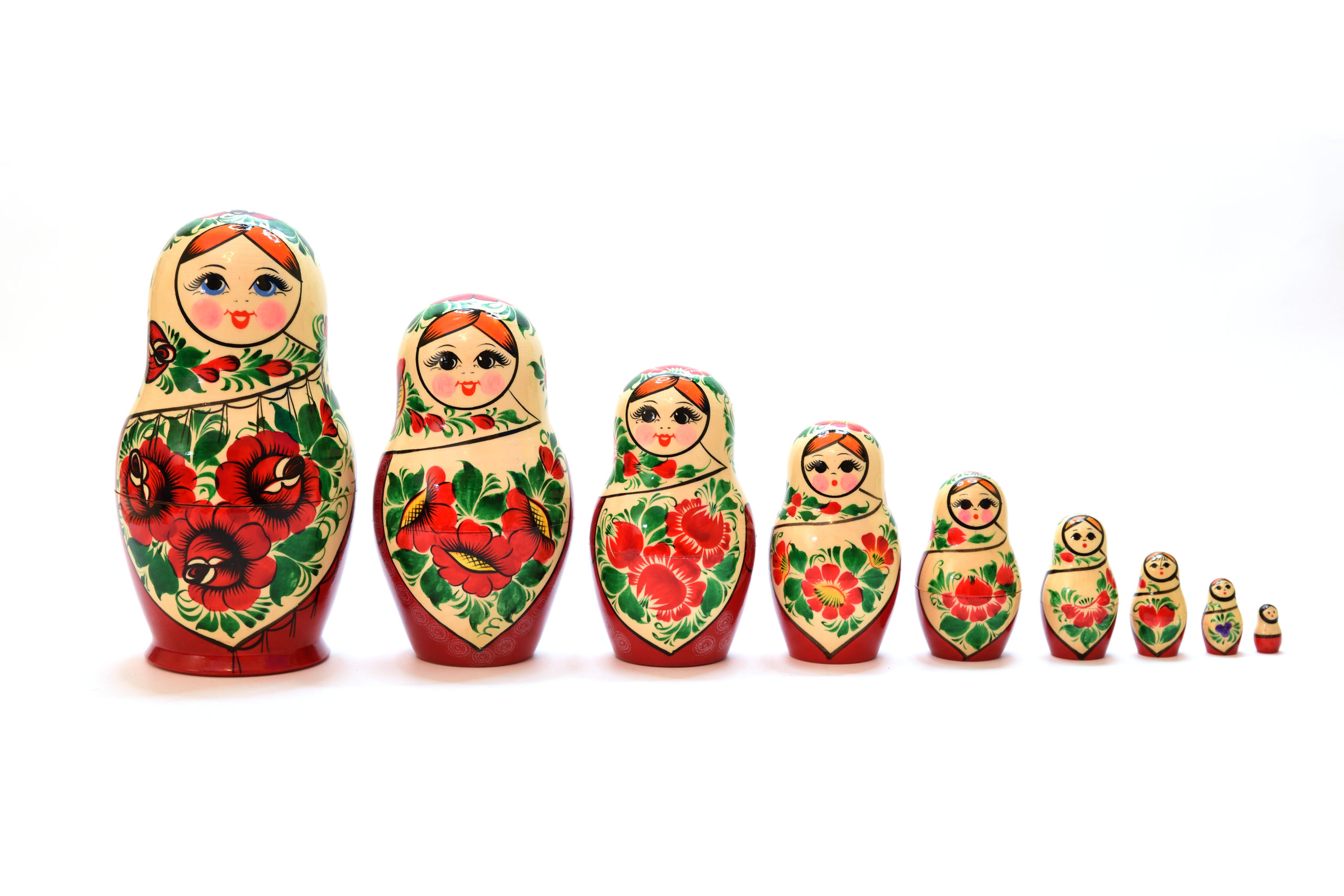
Execute Order 14114!
Secondary sanctions are an important topic when exploring the idea of offensive sanctions against specific Russian economic targets, such as the city-forming enterprises present in monotowns. Going back to the cat and mouse game between the sanctioning powers and the sanctioned, the latter found creative and not so creative ways to elude the former’s efforts, often through non-sanctioned third parties (particularly in Central Asia) in what could be referred as a “shadow economy”.
Secondary sanctions are an answer to this challenge. Executive Order 14114 issued by President Biden in December 2023 is referred to as the Secondary Sanctions Executive Order and for the first time identifies a sector liable to secondary sanctions, namely “non-U.S. financial institutions” that do business with sanctioned entities. This means to strangle access to financial services for designated individuals or legal persons and curb incentives for intermediaries looking to profit from helping Russian sanctioned organizations to buy and sell goods and services. The language of the order is broad and could be interpreted in a way that could target even more entities.
In Darth Sidious’s voice (but not in his spirit), execute order 14114! Applying secondary sanctions to all companies (not just in the financial sector, irrespective of the country of origin) that do business to a selection of companies operating as majority employers in monogorods could act as a test case for how effective they could actually be if we were to apply them at a larger scale. Secondary sanctions worked on deterring Bank of China’s Russian division operations, for example. In fact, this could be a relevant scenario to test the limits of the so-called “no limits” Russo-Chinese partnership, as with the case of the Power of Siberia joint venture.
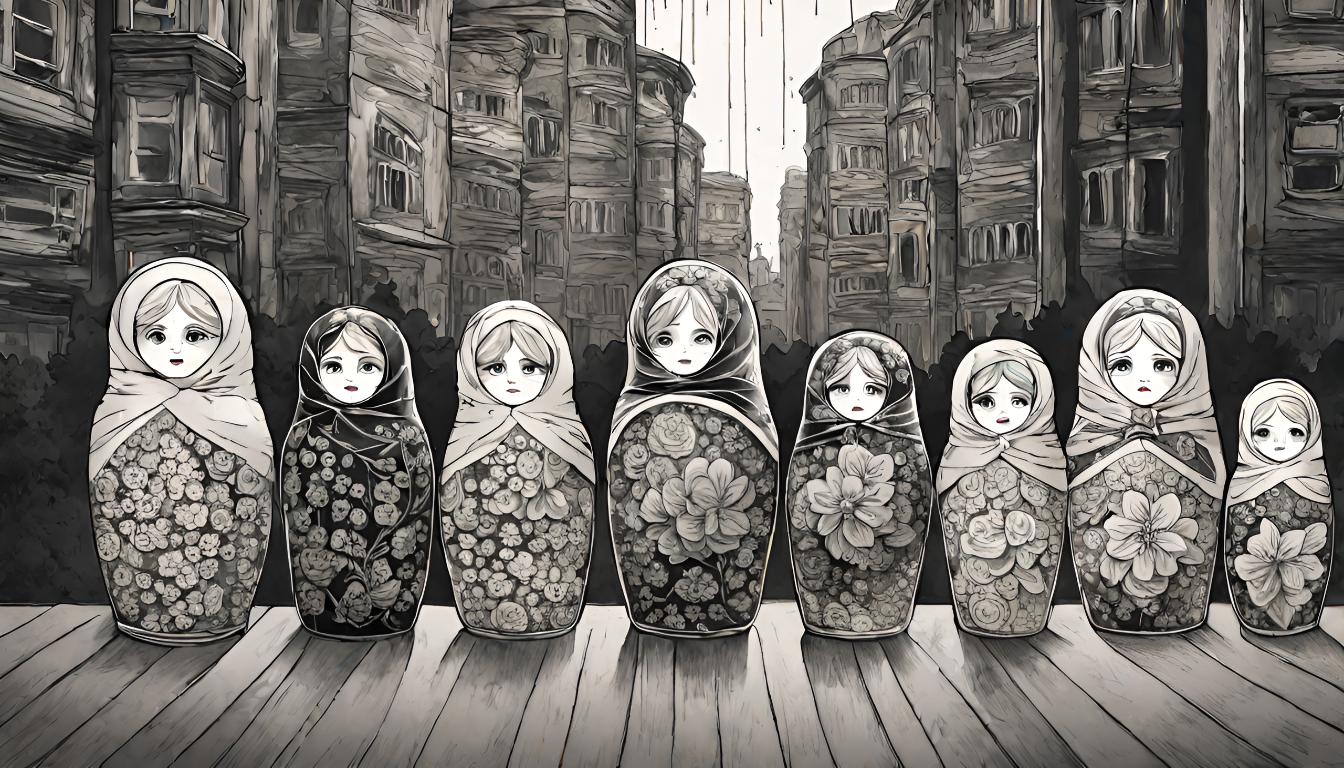
The Human Aspect
The complicated and deep stories of the communities that live in these towns, their relationship with the higher powers of Moscow, are told by Pulitzer Center-supported journalists Anna Nemtsova and Brendan Hoffman in a 2013 series called Russia’s Monotowns. Excellent reporting from the “archetypical Russian industrial rust-belt cities—blighted, polluted, and beset by social problems”, uncovers local voices, such as Yuri Nabokov, Baikalsk’s Paper Mill then head of the professional union, who said that “Not a single letter we wrote to Putin about the situation here has ever received a response.”, concerning the massive layoffs at that time. In the town of Asbest, named after the resource powering its industry, Lilia Orlova, a young resident says “If, God forbid, Ural Asbest shuts down, the entire town’s life will be over“, with no apparent concerns over the health hazards that come with asbestos mining and processing.
In our analysis, we looked at the economy of the Slyudyansky District, which includes the town of Baikalsk. The three entities that we’ve marked as significant employers / city-forming enterprises are OOO Quarry Pereval, Baikal Pulp and Paper Mill, Angasol Crushed Stone Plant. The Paper Mill is now defunct and the other two are not under a sanctions regime. Asbest is in the third risk category, considered “stable”. Uralasbest is currently not under sanctions. Obviously, if these enterprises and others that are relevant to these towns are forced to close, much economic and social pain would follow, pain that will have an impact on the lives of the Russian voices described in the Pulitzer Center’s reporting.
We have to acknowledge that if we want to influence Putin’s strategic calculus not just on the issue of Ukraine, but in the broader West – Russia sense, we need to exploit his regime’s weaknesses and in this case, it involves isolating and collapsing economic agents and areas related to the sanctioned state actor. This should, in theory, make Putin think twice when allocating resources between prosecuting his illegal war and maintaining social stability at home.

The Kursk Special Sanctions Operation
The best analogy in support of using offensive sanctions, such as targeting city-forming Russian enterprises, is with the ongoing Ukrainian offensive in Kursk Oblast, Russia proper. At the time of writing this article, the offensive is very much a conscious risk taken by Ukraine, probably in the hopes of regaining strategic initiative and improving its negotiation position. We don’t know how much this offensive action will impact the overall conflict, but we immediately saw that Russia was forced to change plans and redirect resources to this new Kursk front, parts of which were presumably destroyed by artillery fire. This is an embarrassment for the Kremlin and it puts a spotlight on government mismanagement. These are wins for Ukraine, at least in the short term.
Coming back to the analogy, similarly, a tightly enforced, offensive sanctions package targeting the most vulnerable socio-economic areas of Russia, forcing them to rely solely on state subsidies, might cause serious problems for the Kremlin, who would be forced to divert resources and energy on quelling social unrest (a task that it has gotten better and more brutal at in the last years).
The first step to building on these arguments and taking the initiative is to significantly improve the quality of the data. In our analysis we used Russian language Wikipedia pages and opensanctions.org to check for sanctions. We based our search on a 2014 Russian issued report. The list needs to be updated with the latest polling and figures and there needs to be a much broader search of significant local employers, beyond the formal city-forming enterprises. Also, each subject company (employer) needs to have an ultimate beneficiary (UBO) identified and associated with, to understand who are the actual individuals that have ownership control over these entities.
The next step is identifying the supply chain and client lists for these enterprises, in order to apply or threaten to apply secondary sanctions to these third parties. If successful, it should completely isolate the designated entities from the outside world, forcing them to rely solely on the Russian state. This puts the ball in the Kremlin’s court, forcing tough decisions. Such sanctions can also become a valuable bargaining chip in the eventuality of peace talks.
At the end of the day, as Ukrainian children’s hospitals are being bombed by Russia, we need to push back and regain the initiative on as many fronts as possible, from the ground in Ukraine and Russia, cyberspace, the informational space, to the world of economics, trade and finances.
Analysis by Dragoș Tîrnoveanu, founder 45north




